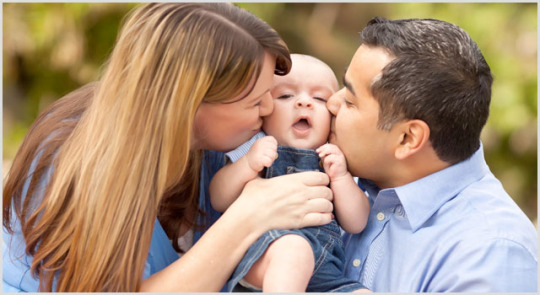To say that baby’s first words represent an important milestone would be something of an understatement to say the least. This is one of those genuine once-in-a-lifetime moments the likes of which parents simply cannot wait for and subsequently never forget. Unsurprisingly, therefore, it can be overwhelmingly tempting to work hard and fast to speed things along and get your baby talking to you.
What’s interesting however is that if you were to speak to any professional speech therapist, they’d tell you that your baby has in fact been talking to your since day one. An incredibly important milestone as it may be, but there’s so much more than anticipating those first words to bear in mind during baby’s earliest weeks, months and years.
So if you’re one of the millions of parents trying to speed up those first words to be spoken, here is a quick look at just a few important things to be aware of in the meantime:
Talking Without Words
First up, and as already touched upon, from the very moment your baby was born, he/she has been chatting to you pretty much nonstop. Every sound they make, every facial expression they mimic, every second of eye contact and every movements and gesture represent an important form of communication which should not be overlooked. Building confidence in kids when it comes to speech and language skills begins from day one – be sure to acknowledge and respond to all forms of baby communication to let them know they’re understood…even if the truth is quite to the contrary!
On-going Monologue
While it’s common to assume that properly spoken words and sentences can be reserved for future years, the earlier you introduce your baby to competent use of language, the better. As such, there’s a good chance you’ll feel a little on the silly side for the first few weeks speaking out loud an on-going monologue of every single thing you do, but this is guaranteed to help your baby’s speech and language development.
Baby Talk?
The debate as to the positive effects or otherwise of baby talk rages on today just as it always has. There are thousands of conflicting and contrasting theories with regard to baby talk and the effect it has on your baby, but realistically you only need to use common sense. Is it going to harm your baby to occasional respond to burbles and grunts likewise, just to stir up a giggle? Of course not. Is it however going to help your baby if you speak using nothing but baby talk four months or years on end? Of course it isn’t. Tip the balance in favour of proper use of language and there’s really nothing to worry about.
Always Listening…
When you first learn a foreign language, you’ll find yourself able to understand vastly more of the language in general than you are actually able to speak. From familiar sounds to words that are similar to those you already know to context and so on and so forth, understanding a language in an audible sense happens much faster and is much easier than being able to speak it. As such, don’t let their little faces deceive you into thinking they don’t understand what you’re talking about. Quite to the contrary in fact, babies and toddlers may not be able to hold a conversation with you, but you’d be absolutely gobsmacked if you knew just how much of what they hear they understand pretty comprehensively.
Forget the Calendar
Every child that has ever been born has developed at his or her own unique pace – and the same will also be said for every child born until the end of time. As such, while it’s always tempting to count down to your baby’s six-month birthday and expect certain progress with regard to speech and language development, experts advise extremely strongly against doing so. Technically speaking, there’s no such thing as a ‘normal’ time to hear baby’s first word and nor is there a specific blueprint to follow when it comes to the development thereafter. The simple advice is to sit back, relax and trust your instincts as a parent – there’s always professional advice out there to be called upon when and where needed.
Keep it Tuneful
Last but not least, you know that typical high-then-low-then-squeaky-high pitch way so many adults talk to babies and young children? Well, contrary to popular belief this can actually be enormously beneficial. The reason being that while baby talk has the potential to instil negative habits with regard to vocabulary and language, simply playing around with the tone of what it is you are saying can effectively stimulate your baby’s interest and grab their attention. Perhaps the best way to think about it is in a musical sense – music is one of the most powerful tools in the world when it comes to nurturing strong speech and language development, so there’s no harm in keeping your own speech as tuneful as possible.

